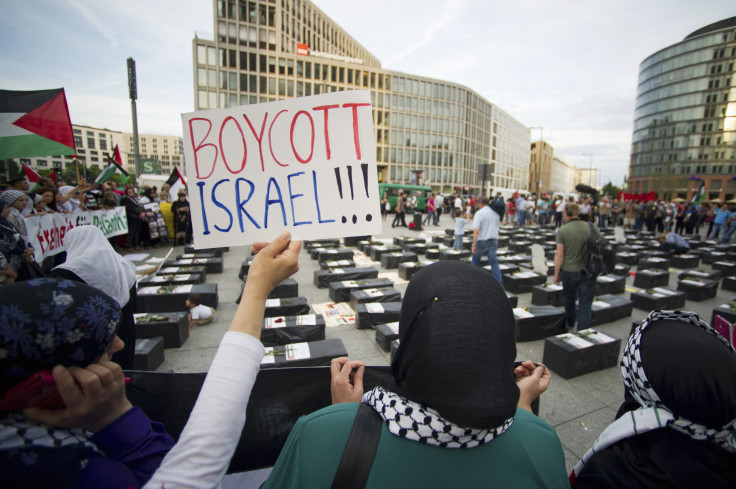West Bank Activists Begin Confiscating Israeli Goods In Boycott

Palestinians encouraging a boycott of Israeli goods in the West Bank began confiscating goods on Tuesday, according to boycott leader Abdullah Kmail. The move began after activists dumped a truckload of Israeli dairy products in a public square in Ramallah, The Associated Press reported.
In the coming days, Kmail said, his group hopes to visit shops and suppliers, targeting products from six major Israeli food companies. "We entered the second phase of the campaign which is confiscating and damaging these goods," he said, adding that the move is meant to demonstrate that “the campaign is serious,” according to AP.
Activists from the Palestinian Fatah movement under President Mahmoud Abbas announced the boycott plans last month, to protest Israel withholding tax revenues it collected on behalf of Abbas’ Palestinian Authority. Israel took the step after the Palestinian Authority appealed to the International Criminal Court, seeking damages for alleged Israeli war crimes.
Since Israel halted the fund transfer, the Palestinian Authority has only been able to pay partial salaries to its 150,000-strong workforce of civil servants and security forces.
Kmail told Haaretz in February that 80 percent of local stores had already stopped stocking Israeli goods, adding that they had given shopkeepers extra time to sell the remaining products. The West Bank accounts for an estimated $700 million a year in food exports from Israel. The current campaign targets the companies Tnuva, Strauss, Elite, Osem, Prigat and Jafora.
The move comes as an increasing number of colleges in the U.S. are boycotting Israeli goods as well. The Boycott-Divestment-Sanction (BDS) movement, has so far not succeeded in its goal of prompting U.S. colleges to sell off stock in companies affiliated with Israel. However, an increasing number of student governments, including those at five of 10 University of California campuses, have voted for the move, PressTV reported.
Israeli foreign ministry spokesman Emmanuel Nahshon called the campaign counterproductive. "Any strategy of boycott, confiscation, hatred and rejection is absolutely counterproductive and is not conducive to an atmosphere of dialogue and negotiations," he told AP.
© Copyright IBTimes 2025. All rights reserved.





















